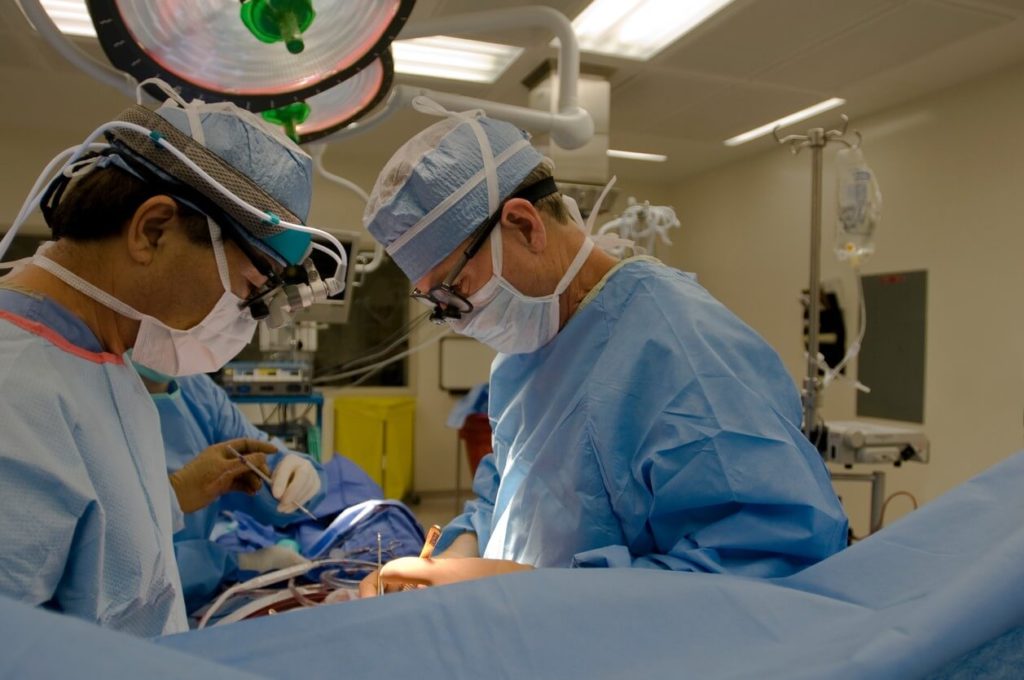Gastric bypass: operation to overcome obesity?
Written by: Loris Vitry (holistic coach)
Validated by: Cathy Maillot (Osteopath)
Caution: If you have any medical questions or concerns, please speak to your doctor. Even if the articles on this site are based on scientific studies, they do not replace professional medical advice, diagnosis or treatment.

Obesity is a serious medical condition.
Several people in the world are affected today by this disease and several factors are involved.
Our contemporary lifestyle with sedentary lifestyle, unhealthy diet, genetic and even psychological factors such as stress can explain the occurrence of obesity.
In the care of obese people, an interesting option has been in vogue for several years, that of gastric surgery.
Gastric Bypass is a surgical operation that involves reducing the stomach by bypassing part of it.
The absorption of food is then limited.
The effectiveness of this operation in the face of obesity makes it possible to recognize it as a treatment for obesity, however comprehensive monitoring is necessary to overcome the disease over time.
Obesity and its causes
We can all gain weight if we don’t watch our eating habits, and if we don’t engage in physical activity either.
Our way of life is favorable to this situation.
However, when it comes to being seriously overweight, we are no longer talking about simple weight gain, but obesity.
To diagnose obesity, one goes through the calculation of the body mass index BMI.
It is calculated by performing a simple division operation.
The weight is divided by the square of the height.
The quotient obtained, when it exceeds 30, is equivalent to obesity.
This very easy diagnosis is therefore within everyone’s reach, even if it can be qualified in some cases.
We can distinguish several causes of obesity.
The one that seems more obvious to everyone is the subject’s behavior in matters of diet and sport.
A diet too rich in fats and sugars, a lack of regular physical activity are serious factors of obesity.
We can also cite psychological factors.
A person who is very anxious or suffering from serious stress may have to overeat.
Obesity could also stem from genetic causes, according to research on the subject.
Obesity should be taken seriously.
It can indeed lead to the appearance of other medical conditions such as high blood pressure, diabetes, etc.
This is why medical follow-up is essential to determine the most suitable treatment.
Gastric bypass to treat obesity
There are several options for managing obesity, including surgery.
Gastric Bypass is one of the possible surgical options.
Choosing this option is within the competence of the medical team following the obese person.
This is a serious decision that is usually made when the person has tried diets without success.
When we talk about Gastric Bypass, we mean a short circuit that we put in place in the person’s digestive system.
In practice, the stomach is reduced, with a good part that will no longer be used and the other that remains in function.
The entire duodenum and the small intestine (only partially) are also excluded.
Gastric Bypass allows significant weight loss.
This is a great advantage that can be seen already in the months following surgery, which makes it an interesting treatment for obesity.
The operation to reduce the absorption of food is therefore effective in reducing weight.
However, the patient will necessarily have to adopt new eating habits.
The operation is not the final hammer blow to obesity.
The post-operation is also important to manage to overcome obesity and adapt to your new food circuit.
The gastric bypass also has the merit of bringing about improvements in comorbidities in the patient.
After the operation: side effects
Gastric bypass does not mark the end of the journey for an obese person.
Indeed, some side effects occur after the operation.
It is therefore important for a better follow-up that the patient benefits from psychological follow-up.
Usually the person can be affected in their self-image.
Very serious weight loss requires cosmetic surgery on certain areas of the body such as the stomach, and the person’s experience during this time can be difficult.
Some people also notice weight gain some time after the operation, which can lead to severe depression in the person who feels they have failed.
In addition, there are other side effects such as appetite disturbances, vitamin and mineral deficiencies, etc.
The patient is forced to adapt to his digestive system as it is now and to adopt new eating habits.
Global monitoring to overcome obesity
If the surgical intervention is not a magic wand that comes to end obesity in the person concerned, it therefore emerges that a more comprehensive follow-up, taking into account the factors of obesity, is necessary to act effectively against disease.
Psychological follow-up to manage anxiety and stress problems upstream is necessary.
A person can quickly fall back into unbalanced eating behavior (too fatty or too sweet), if they fail to come out of the stress or depression that holds them.
The patient’s relationship with food and his emotions should be taken seriously.
The operation does not resolve the psychological factors of the disease.
It can even amplify them, when the person has to deal with changes in their body.
In addition, the importance of adopting regular physical activity is well established.
We must refuse to give in to a sedentary lifestyle.
It is not about engaging in excessive sporting activities.
An adapted physical activity is rather recommended.
It is also effective in managing stress.
Adapting to your new diet is important to avoid the inconveniences that can occur with feeding.
Following the advice of doctors is an absolute necessity in this matter.
Gastric Bypass does not automatically mean a total victory over obesity.
The operation is certainly effective when we see the weight loss of the patients in the months that follow.
However, for lasting change, the obese person must understand that they have to struggle on their own.
This will only result from a daily desire to leave this state of obesity through healthier lifestyles.
Continue reading:
How to increase your endorphins?

